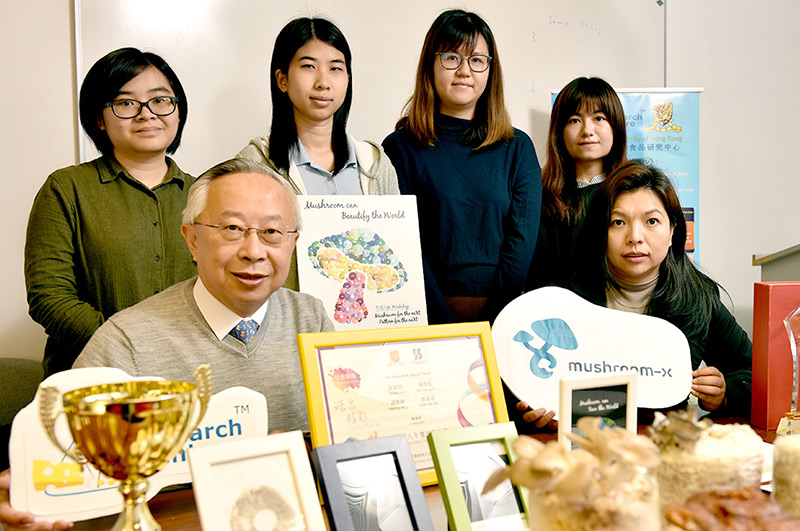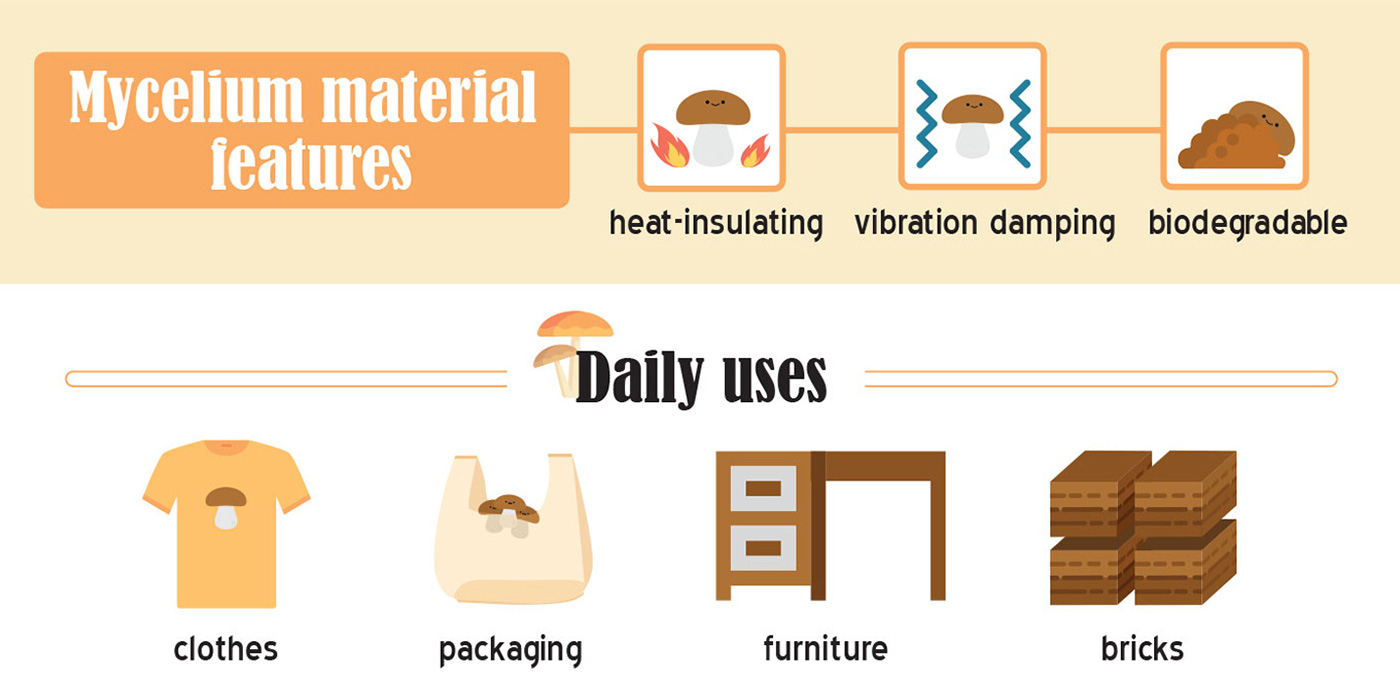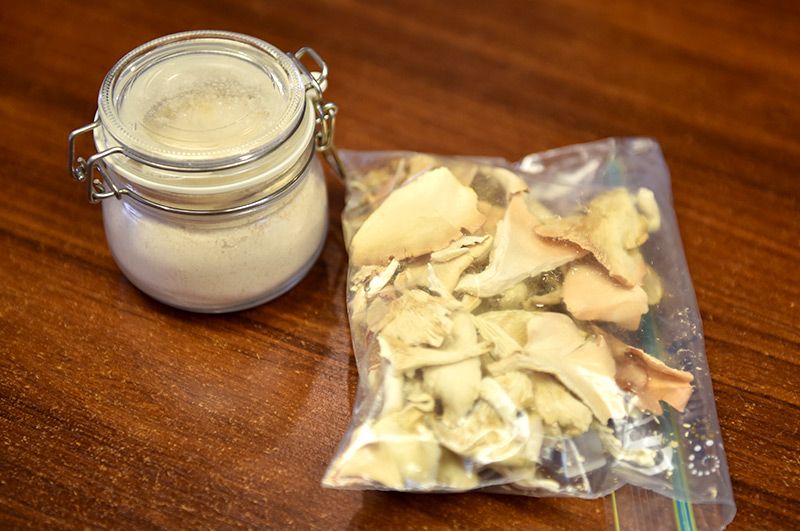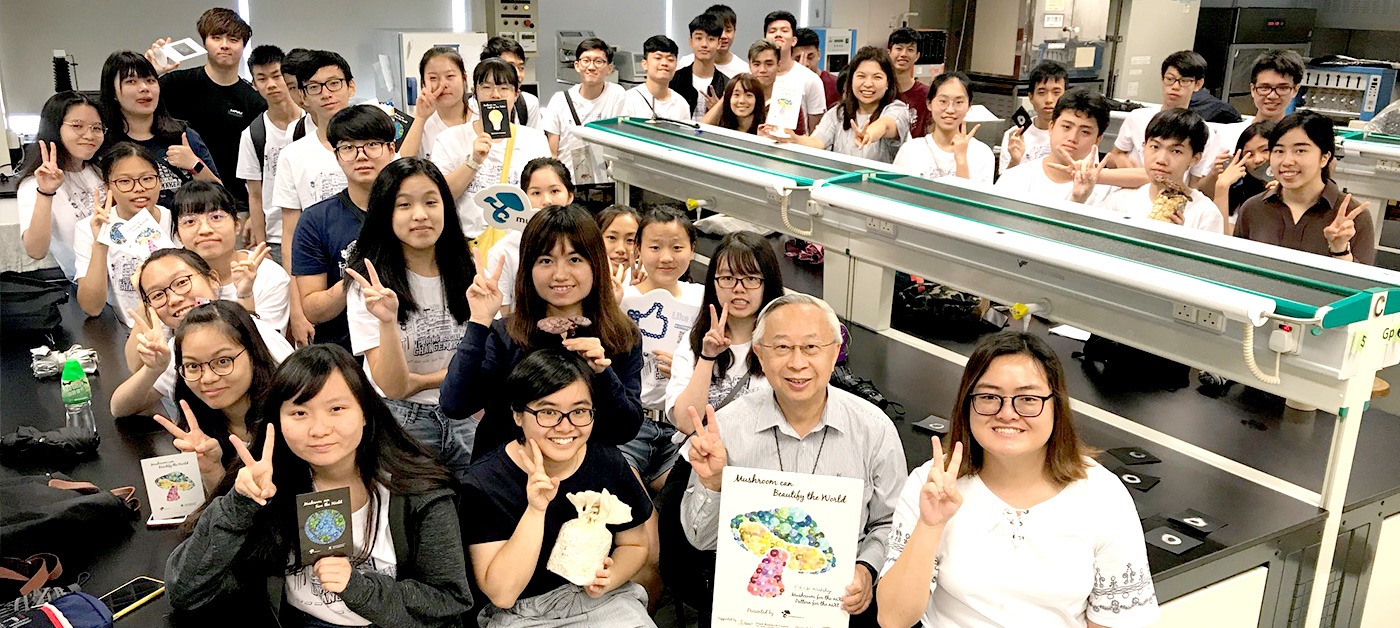Fungi Fantasia
Mushrooms as food, building blocks and sustainability crusader
Reported by
J. Lau, Information Services Office
Share this story
Mushrooms have been a classic delicacy and more recently, a superfood winning the hearts of health enthusiasts. Eyeing solely the gourmet and medicinal appeal of fungi—a proud taxonomic group on par with other living organisms—is however selling them short. There are more to mushrooms than are ever dreamt of by us: as composting agent and building bricks.
‘The fruiting body of mushrooms usually serve as food, but the wonders of mycelium, the white-coloured, root-shaped vegetative part of a fungus, are beyond one’s imagination,’ Prof. Kwan Hoi-shan, Research Professor of School of Life Sciences and Director of Food Research Centre, reckoned.
Hoping to spotlight mushrooms’ many wonders and bring them to the public, Professor Kwan joined forces with like-minded professors and students from the School of Life Sciences to found the social enterprise Mushroom-X under the auspices of the University’s Sustainable Knowledge Transfer Fund in March 2018.

Mushroom Materials
Right from the start, Mushroom-X has been trying to utilize the non-edible parts of mushrooms to develop environmentally-friendly biomaterials: they collect composts, wood chips, coffee grounds and bean dregs and mix them with cultivated mycelium to develop nonflammable, heat-insulating, vibration damping and biodegradable materials that can be used in product packaging and thermal insulation for buildings.
Pliable as leather or as rigid as wood, and resistant to fire, water and mildew, the mycelium-based biomaterial is a perfect substitute for carcinogenic construction materials such as glass wool. By adding the mycelium threads to the right mould container, bricks of different sizes and shapes can be fabricated for building walls or even an entire house. Furniture can also be made in such manner, writing off plastic-based furnishings.

The industrial application of the biomaterial does not go off without a hitch. Professor Kwan said, ‘Foreign researchers once made use of mycelium to build a chair, but mushrooms were soon sprouting on it.’ As fungi growth could compromise the safety of the product structure, some US firms attempt to put the fungal bricks in an oven to kill the fungi through intense heat to prevent mushrooms from growing on them. Professor Kwan and his colleagues drew on their genetic knowledge and eventually developed a new technology to curb fungi growth, suppressing the process at the hyphae stage.
Magic Compost
More still, mycelium is capable of waste recycling, turning landscape, agricultural, animal and other wastes into compost. This is due to the fact that fungi lack chlorophyll and cannot conduct photosynthesis; as they obtain nutrients from organisms ranging from dead plant to animal matter, their mycelium releases enzymes to decompose branches, fallen leaves and animal carcasses and thrive on them. ‘Without fungi, dozens and dozens of garbage would be stacked up in the streets,’ said Ms. Beatrice Ho, Project Manager of the Food Research Centre who is another co-founder of Mushroom-X.

Heartening Regimen
The team didn’t forget what mushrooms have long been valued for—as food. ‘People are tapping into the worm-catering market as an alternative protein source provider, but why not consider mushrooms?’ said Ho. Till now, the team has cultivated specific mushroom species, such as lingzhi and oyster mushrooms, for health regimen.
On the side of education, the team is teaching secondary and primary school students spore print artwork production and sustainable farming of mushrooms under a STEAM (science, technology, engineering, art and mathematics) education initiative, which brings them closer to nature. Looking ahead, Mushroom-X will continue to develop different biomaterials and edible fungi, open up brand new waste recycling methods, and advise on using fungi for medicinal purposes. The team has also set up a data bank on mushroom species and is ready to supply farmers with cultivation technology.

Share this story
UP NEXT
Crossing Boundaries
As Prof. Wu Ka-ming was getting ready for our chat in her office, I sneaked a look at her bookshelves…

